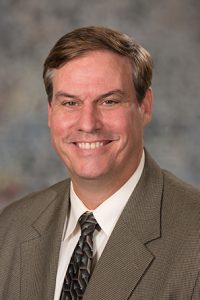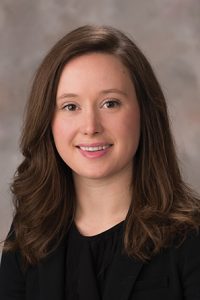Language assessment program sought for deaf children
The Education Committee heard testimony Jan. 28 on a bill that would require special language assessments for children who are deaf or hard of hearing.
Also discussed was a bill that would recognize American Sign Language as a distinct language in state law.

The program would assess, monitor and track the language developmental milestones of those children from birth through age five.
McDonnell said research has shown that language deprivation during those years is the main cause of reading, academic and social problems for many deaf children.
He said LB965 would provide a list of assessments and other tools that schools could use to measure a deaf child’s language and better support deaf or hard of hearing students who use American Sign Language, English or both.
Beginning July 1, 2021, language assessments would be given as needed to each child under 6 who is deaf or hard of hearing. A network that provides service coordination for children with special needs would provide the assessments for children under the age of 3; school districts would provide them for children older than 3.
The commission would appoint a 14-member committee to advise it on all aspects of the language assessment program. Before July 1, 2021, the committee would develop specific action plans and make recommendations necessary to implement the program.
In doing so, the committee would review, recommend and monitor the use of available language assessments and determine qualifications for identifying assessment evaluators with knowledge of the use of evidence-based best practices with children who are deaf or hard of hearing.
The bill also would require the commission to publish an annual report specific to language and literacy developmental milestones of children who are deaf or hard of hearing relative to their peers who are not deaf or hard of hearing. The commission would publish the report on its website and submit it to the Clerk of the Legislature and the Education Committee.
Linsay Darnall Jr., a National Association of the Deaf board member, testified in support of both bills. Darnall, who is deaf, said he arrived at kindergarten “language ready” because he was able to communicate with his parents and brother, who also are deaf.
Many young children who are deaf or hard of hearing lack that support, however, and fall behind their peers, Darnall said.
He said LB965 would enhance the Individuals with Disabilities Education Act by requiring more comprehensive state assessments for deaf and hard of hearing children in addition to those already required by the federal law. This would provide more opportunities for those children to acquire language before they enter kindergarten, Darnall said.
Under LB839, sponsored by Lincoln Sen. Anna Wishart, the Legislature would declare that Nebraska recognizes American Sign Language as a separate and distinct language. Wishart said Nebraska is one of only five states that have not made that formal recognition.
The bill also would allow the State Board of Education to provide for the teaching of American Sign Language in schools. If a school offers a course in ASL, the bill would require that it be offered to all students regardless of whether a student is hearing, hard of hearing or deaf.
LB839 also would allow any postsecondary institution to offer an elective course in ASL, and those institutions could treat credits earned in an ASL course as foreign language credits.
Carly Weyers, a behavioral health coordinator and deaf services coordinator for the Nebraska Commission for the Deaf and Hard of Hearing, testified in support of LB839.
Weyers said people who are deaf or hard of hearing often are marginalized for being different, partly because of their method of communication.
“If we recognize ASL as a language, that will remove that negative stigma,” she said, which would create more opportunities for the deaf and hard of hearing in education, employment and their daily lives.
Amy Rhone, assistant director of the office of special education at the state Department of Education, also testified in support of both bills.
Nebraska faces a teacher shortage, she said, and the need is most acute for teachers and educational interpreters who work with “low-incidence populations” of students with the highest needs, such as the deaf and hard of hearing.
Rhone said LB839 could help address that shortage by providing more opportunities for Nebraska students to take classes in ASL and later go on to teach it.
No one testified in opposition to either bill and the committee took no immediate action on them.

